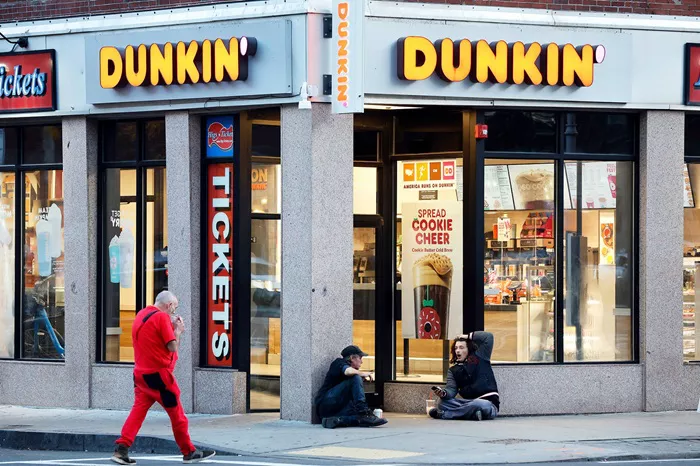In a recent ruling, the Florida District Court of Appeal sided with Dunkin’ Donuts, overturning a Compensation Claims Judge’s (JCC) decision that denied the company’s request for a continuance. The case centers on a cashier who sustained injuries from an electrical shock while working at Dunkin’ Donuts, which led to long-term health complications.
The Incident and Medical Issues
The cashier was injured when she received an electrical shock while plugging in a cash register. After initial treatment, she was declared to have reached maximum medical improvement. However, nearly two years later, she reported worsening symptoms, including balance issues, difficulty walking, pain, and bladder problems.
The situation worsened when the cashier also began experiencing trouble eating, along with the appearance of bumps on her neck. After further medical evaluation, she was diagnosed with neurofibromatosis type I, a condition that causes tumors along the spinal cord. One of the tumors was found to be severely compressing her spinal cord, leading to a surgical procedure that, while successful, did not fully alleviate her symptoms.
The Physician’s Changing Opinion
As the cashier sought workers’ compensation benefits, her treating physician changed his opinion. Initially, the doctor had not linked her condition to the workplace accident. However, later, the physician concluded that the accident was the main cause of the cashier’s neurological issues.
Dunkin’ Donuts sought a continuance of the final hearing based on this change of opinion, arguing that the shift was unexpected and beyond their control. However, the JCC denied the request, stating that the situation did not meet the criteria for a continuance under Florida law, as the company could have taken steps to prevent the delay.
The Legal Argument
According to Florida statute 440.25(4)(b), a continuance can only be granted if the requesting party can show that the reasons for the request were beyond their control. In this case, Dunkin’ Donuts argued that the doctor’s change of opinion was a factor they could not have predicted, which justified their request for more time.
Court’s Ruling
The appeals court disagreed with the JCC’s ruling, stating that Dunkin’ Donuts should not have been penalized for the unexpected change in the physician’s opinion. The court noted that the physician could not recall when his opinion had changed, suggesting that Dunkin’ Donuts could not have known about the shift in time to address it before the hearing. Additionally, although the company had arranged for an independent medical examiner, the examination was delayed through no fault of their own.
In its decision, the court concluded that the reasons for the continuance were indeed beyond Dunkin’ Donuts’ control, and therefore, the JCC’s denial was unjustified. The court reversed the decision and vacated the benefits awarded to the cashier.
Key Takeaway
This case underscores that under Florida law, a doctor’s late change in opinion can justify a request for a continuance, especially when the circumstances are beyond the control of the requesting party. Dunkin’ Donuts’ successful appeal highlights the importance of flexibility in workers’ compensation cases when new medical evidence emerges unexpectedly.
Related Topics:

